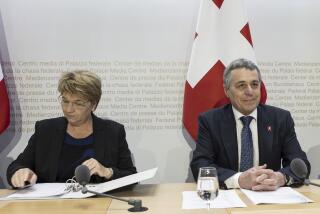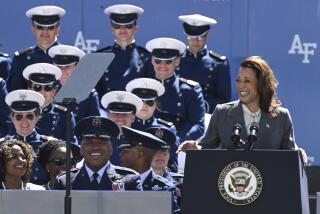U.N. Sends Deputy to Aristide Meeting
- Share via
UNITED NATIONS — The U.N.’s chief trouble-shooter on Haiti will not be attending the weekend conference called by exiled President Jean-Bertrand Aristide on the future of the country.
The United Nations will send Colin Granderson, executive director of the U.N. operation in Haiti, and not chief mediator, Dante Caputo, to the Miami conference, a U.N. spokesman said Friday.
The move apparently reflects doubts by the United Nations that the conference would have much impact in solving the Haitian crisis as well as disappointment with Aristide for killing a broad-based conference planned for December in Haiti, diplomats said.
Officially, U.N. spokesmen say that Caputo could not go to Miami because he is at his home in Argentina and would not arrive in time. They point out that in addition to Granderson two officials from U.N. headquarters in New York will attend.
Of the four nations serving as an advisory body on Haiti at the United Nations, the United States is sending Lawrence Pezzullo, Washington’s special envoy for Haiti. France, Venezuela and Canada are sending medium-level delegates.
Aristide had originally excluded the military from the conference but then invited them, although it was doubtful they would attend. Diplomats also said it was not certain if representatives from the private sector would arrive.
Many prominent Haitians had expressed a hope to attend, but were fearful of reprisals from the military if they said so publicly, Aristide’s backers say.
U.S. officials had pressed for inclusion of military representatives saying it would be harder to resolve the crisis if they failed to take part.
Like the United States, U.N. officials are also dismayed that Aristide killed a conference he first backed in December called by Prime Minister Robert Malval in Port-au-Prince in hopes of bringing all the feuding parties together.
At the same time, diplomats said there was a realization that the Haiti problem could not be resolved without Aristide, the country’s first democratically elected president who warned U.N. officials months ago that the military would not restore democracy without an international force on the scene.
More to Read
Sign up for Essential California
The most important California stories and recommendations in your inbox every morning.
You may occasionally receive promotional content from the Los Angeles Times.













